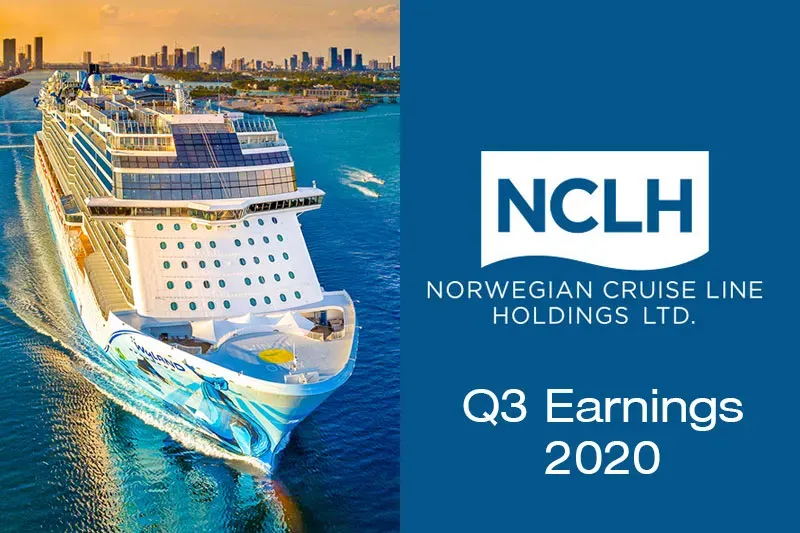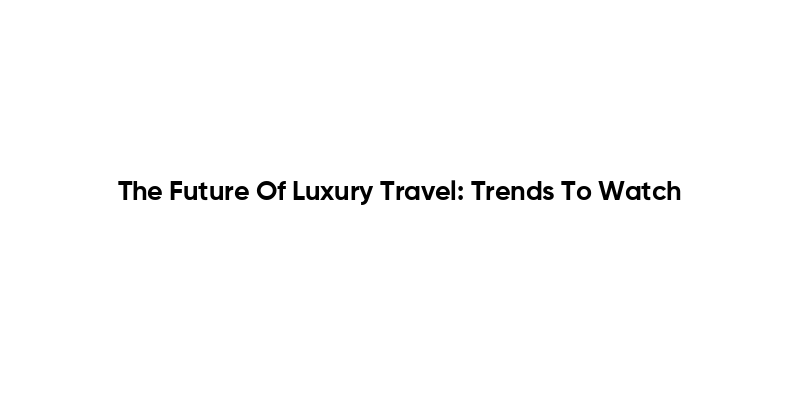The Norwegian Cruise Line earnings report has brought both concern and insight into the current state of the cruise industry, highlighting a notable dip in shares by over 7%. This change followed the company’s first-quarter revenue announcement of $2.13 billion, slightly below expectations and accompanied by lower-than-anticipated adjusted earnings per share. CEO Harry Sommer pointed to a shift in consumer sentiment, suggesting that potential travelers may be hesitant about booking more expansive journeys, particularly to Europe. With economic uncertainty weighing on some consumer decisions, the overall climate for cruise bookings remains mixed. Despite these challenges, Norwegian believes that the allure of cruise vacations continues, as they tend to offer perceived value even amidst fluctuating economic conditions.
The recent financial disclosure from Norwegian Cruise Line offers a revealing look into the broader dynamics at play within the maritime travel sector. With shares experiencing a significant decline, the report sheds light on consumer behavior, which appears increasingly cautious regarding long-distance travel amidst economic shifts. CEO Harry Sommer’s remarks about adjusting expectations for passenger bookings reflect the ongoing challenges faced by the industry, as passenger preferences evolve. As the landscape of maritime tourism navigates through these uncertainties, understanding the factors affecting traveler confidence becomes critical for cruise line operators. This scenario emphasizes the importance of adapting strategies and offerings to meet the changing demands of holidaymakers.
Norwegian Cruise Line Earnings Report Insights
Norwegian Cruise Line’s recent earnings report has raised eyebrows in the cruise industry, showcasing a notable decline in shares following a disappointing first-quarter result. With reported revenue of $2.13 billion, the company fell short of the expected $2.15 billion, illustrating how economic uncertainty can affect consumer sentiment and cruise bookings. Adjusted earnings per share of 7 cents, compared to the anticipated 9 cents, indicate that Norwegian is facing challenges to maintain investor confidence amid these financial fluctuations.
CEO Harry Sommer emphasized the need for the company to adapt to shifting consumer preferences, particularly regarding longer European voyages. He described the recent hesitance of American consumers to commit to extensive travel abroad, hinting at changing attitudes that are closely tied to broader economic conditions. Despite these hurdles, Sommer remains optimistic about the cruise industry’s resilience, suggesting that even during economic downturns, vacationers prioritize cruising as a cost-effective vacation option.
Consumer Sentiment and Its Impact on Cruise Bookings
Consumer sentiment plays a vital role in shaping the landscape of cruise bookings, as evidenced by Norwegian Cruise Line’s recent struggles. The hesitance to book travel, especially for longer cruises to Europe, reflects a broader apprehension among consumers regarding long-distance travel during uncertain economic times. Awareness of potential rising costs and changing travel norms can significantly influence vacation decisions, making the cruise industry particularly susceptible to these sentiments.
Despite the current dip in consumer confidence, it’s essential to recognize that cruising remains a beloved choice for many travelers. CEO Sommer highlighted how cruise vacations are seen as a fundamental right by consumers, suggesting that the allure of all-inclusive experiences at sea could prevail even in tougher economic climates. The industry’s focus on delivering exceptional experiences will be crucial in attracting cruise enthusiasts back to the booking table.
Adjustments to Norwegian Cruise Line’s Financial Guidance
In light of the recent earnings report, Norwegian Cruise Line’s shift in financial projections illustrates a careful recalibration to adapt to prevailing market conditions. The downward adjustment in net yield growth guidance to a range of 2% to 3% indicates a proactive strategy aimed at mitigating financial risks associated with fluctuating consumer behavior. However, the company maintained steady projections for EBITDA and adjusted earnings per share, anticipating benefits from favorable currency exchange rates and decreased fuel prices.
These adjustments signify Norwegian Cruise Line’s commitment to managing costs effectively while striving to boost consumer confidence in cruising. As economic uncertainties linger, such financial prudence is crucial for maintaining operational stability. The cruise industry will need to continuously innovate and enhance offerings to reassure consumers that cruising can provide a remarkable escape without excessive financial burdens.
The Broader Cruise Industry Trends
The current landscape of the cruise industry reveals significant challenges as operators grapple with shifting consumer sentiment amidst economic uncertainty. Competitors like Royal Caribbean have also reported slumps in share prices despite better-than-expected quarterly outcomes, indicating that caution is widespread within the industry. Despite record-breaking results from Carnival Cruise Lines, the overall trend suggests that consumer hesitation impacts not only Norwegian Cruise Line but the entire category of cruise vacations.
The advent of economic fluctuation necessitates a more strategic approach for cruise lines, focusing on targeting the needs and desires of travelers. As consumer sentiment continues to evolve, the ability of these companies to adapt to changing market demands will be critical for long-term success. The perception of cruising as a valuable and enjoyable vacation choice remains intact, but cruise operators must work diligently to preserve and enhance this sentiment.
Short- and Long-Term Implications of Earnings Declines
The 7% decline in Norwegian Cruise Line’s shares following their earnings report raises significant questions about the short- and long-term implications for the company and the broader cruise industry. In the short term, this decline may affect investor confidence and future financing opportunities, making it crucial for Norwegian to address these earnings disappointments. Enhanced marketing strategies and promotional offers could play a key role in regaining consumer trust and stimulating cruise bookings during this period of economic uncertainty.
In the long run, however, industry experts suggest that the cyclical nature of travel and consumer behavior means that downturns may be temporary. As economic conditions stabilize and consumer sentiment shifts positively, Norwegian and its competitors may find themselves in a stronger position to capture the returning interest in cruise vacations. The focus must remain on creating value for travelers, ensuring that cruising retains its status as a preferred leisure option.
CEO Harry Sommer’s Perspective on Consumer Behavior
CEO Harry Sommer’s insights shed light on the interplay between consumer behavior and the cruise industry’s performance. His observations regarding the recent softening in travel bookings underscore the nuanced relationship between economic factors and cruise travel preferences. Sommer’s perspective indicates a need for Norwegian to harness data on consumer sentiments and adapt accordingly, potentially adjusting marketing efforts to reassure skittish travelers about the value of a cruise experience.
Moreover, Sommer’s belief that consumers will continue to seek out vacations, even amidst economic challenges, highlights the enduring allure of cruise vacations. This optimistic outlook is pivotal for guiding the company’s strategies moving forward. By focusing on enhancing the overall customer experience and addressing concerns related to travel uncertainty, Norwegian can work towards revitalizing bookings and fostering loyalty among its clientele.
Navigating Economic Uncertainty in the Cruise Market
As the cruise industry navigates through periods of economic uncertainty, strategic planning is essential for maintaining momentum. The ability to adapt to consumer sentiment shifts, as highlighted by Norwegian Cruise Line’s recent experiences, is crucial. Economic uncertainties can prompt travelers to reconsider their spending priorities, creating a pressing need for cruise lines to demonstrate the distinct value their offerings provide.
Moreover, economic downturns often compel cruise lines to innovate and introduce promotions that align with travelers’ budgets and preferences. By enhancing programmatic flexibility and offering competitive pricing, companies like Norwegian Cruise Line can assure consumers that cruising offers a relevant and worthwhile escape. This focus on adapting to economic realities will be key to sustaining growth amidst fluctuating market conditions.
Future Prospects for Norwegian Cruise Line
Looking ahead, Norwegian Cruise Line’s future prospects hinge on its ability to respond to evolving consumer preferences amid economic challenges. As bookings fluctuate due to changing sentiments, the company must ensure that its cruise offerings stand out as not only desirable but also affordable. Strategic partnerships with travel agencies and the use of targeted marketing campaigns could help reestablish trust with consumers hesitant to commit to future travel.
Furthermore, the company’s focus on enhancing the cruising experience through technology and experiential offerings can positively influence consumer decisions. By investing in upgrades to onboard amenities and diversifying itineraries, Norwegian can attract a wider audience, thereby fostering growth. Ultimately, a commitment to meeting and exceeding customer expectations will determine the success of Norwegian Cruise Line in the upcoming seasons.
The Resilience of the Cruise Industry Amid Challenges
The resilience of the cruise industry is tested through periods of economic uncertainty and shifting consumer sentiment. Despite the challenges faced by Norwegian Cruise Line and its competitors, the industry’s historical ability to rebound suggests potential for recovery. As consumers return to travel, the emphasis on delivering exceptional cruise experiences will be key in regaining market share.
The industry’s collective experience during economic fluctuations provides invaluable lessons in adaptability. By analyzing past trends and consumer behaviors, cruise lines can develop more robust strategies that not only withstand economic downturns but also thrive in the long term. The enduring appeal of cruise vacations, coupled with strategic innovations, can propel the industry beyond current uncertainties into a new era of growth.
Frequently Asked Questions
What were the key highlights from the Norwegian Cruise Line earnings report for the first quarter?
The Norwegian Cruise Line earnings report for the first quarter revealed a revenue of $2.13 billion, slightly below the expected $2.15 billion. The company reported adjusted earnings per share of 7 cents, missing the 9 cents expectation. Concerns about consumer sentiment impacting cruise bookings were noted, particularly for longer trips to Europe.
How did the Norwegian Cruise Line earnings report affect its stock performance?
Following the release of its earnings report, shares of Norwegian Cruise Line fell over 7%. This decline reflects investor concerns regarding the reported softness in consumer demand and a decrease in cruise bookings, amid rising economic uncertainty.
What did CEO Harry Sommer say about consumer sentiment in relation to the Norwegian Cruise Line earnings report?
In the context of the Norwegian Cruise Line earnings report, CEO Harry Sommer indicated a change in consumer sentiment, stating that Americans have become skittish about booking longer European cruises. He observed a notable reduction in bookings from the U.S. in recent weeks, suggesting caution among travelers about far-from-home travel.
How are economic uncertainties impacting the cruise industry according to the Norwegian Cruise Line earnings report?
The Norwegian Cruise Line earnings report highlights that despite some softness in consumer demand, cruise vacations continue to be favored by consumers during times of economic uncertainty. CEO Sommer emphasized that cruises provide perceived value over traditional land-based vacations, implying resilience in cruise bookings even amidst economic fluctuations.
What adjustments did Norwegian Cruise Line make to its growth guidance in the earnings report?
Norwegian Cruise Line adjusted its net yield growth guidance downward to a range of 2% to 3%. However, it maintained its projections for EBITDA and adjusted earnings per share, anticipating cost savings from favorable currency exchange rates and lower fuel prices, demonstrating a strategic response to current market conditions.
How does Norwegian Cruise Line’s stock performance compare to its competitors based on the earnings report?
Norwegian Cruise Line shares have slid 37% year to date, which is a more significant decline compared to competitors such as Carnival Cruise Lines, which reported record-breaking earnings despite facing a 26% drop in stock value. Royal Caribbean also saw a 6% decrease in shares but was able to raise its full-year guidance.
What insights about the cruise bookings market can be gleaned from the Norwegian Cruise Line earnings report?
The Norwegian Cruise Line earnings report indicates that there is ‘choppiness’ in cruise bookings, particularly for European routes, as consumer sentiment has shifted in recent months. Despite short-term fluctuations, Sommer noted that consumers remain committed to vacationing, suggesting that there may be potential for recovery in cruise bookings as market conditions stabilize.
| Key Point | Details |
|---|---|
| Stock Performance | Norwegian Cruise Line shares fell more than 7% after first-quarter earnings report. |
| Earnings Report | Revenue was $2.13 billion, missing expectations of $2.15 billion; adjusted EPS reported at 7 cents versus anticipated 9 cents. |
| Consumer Demand | Caution observed in consumer demand for longer cruises, especially to Europe, as indicated by CEO Harry Sommer. |
| Booking Activity | Bookings for European cruises were strong until a recent trend of consumer hesitancy began. |
| Guidance Adjustments | Net yield growth guidance lowered to 2% to 3%, while EBITDA and adjusted EPS projections remain unchanged. |
| Market Context | Royal Caribbean reported a 6% decline in shares; Carnival also faced a 26% decrease despite strong Q1 results. |
| Consumer Behavior | Despite recent challenges, CEO Sommer believes that vacations are a fundamental consumer desire. |
| Economic Outlook | The cruise industry remains attuned to changing consumer sentiment amidst evolving economic conditions. |
Summary
The Norwegian Cruise Line earnings report reveals notable challenges for the company as shares drop over 7% due to lower-than-expected profits and signs of weakened consumer demand. CEO Harry Sommer’s insights indicate a hesitance amongst Americans to embark on longer cruises, particularly to Europe, reflecting a broader shift in travel sentiment. Despite this, Norwegian maintains steady EBITDA and earnings projections, aiming to navigate the uncertainties in the cruise market. As the cruise industry adapts to these changes, the commitment of consumers to vacation remains evident, reaffirming the enduring allure of cruise vacations even in fluctuating economic climates.



